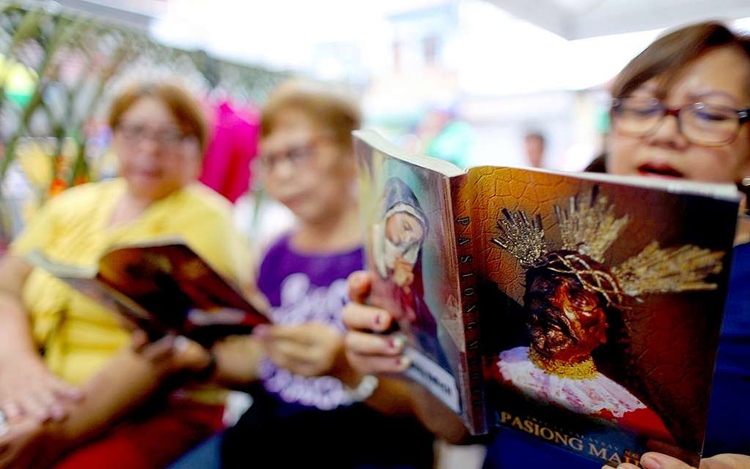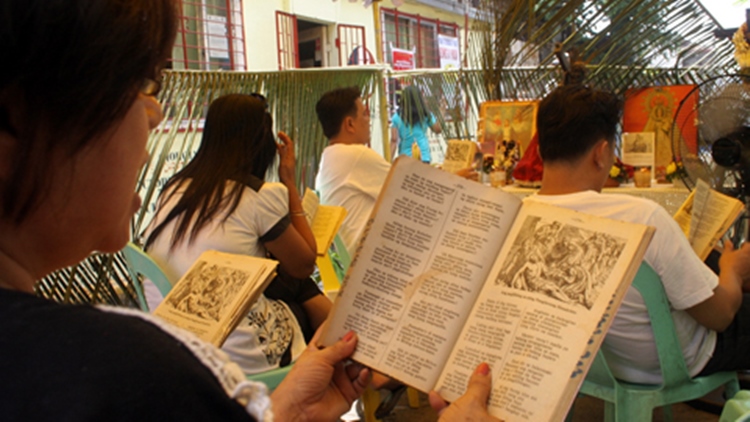The Story Behind the Holy Week Pabasa
SEMANA SANTA – The Pabasa ng Pasyon is a long-standing tradition among Filipino Catholics during Holy Week.
It involves the continuous reading or singing of the Pasyon—a sacred book that recounts the life, suffering, death, and resurrection of Jesus Christ. This activity typically takes place from Holy Monday until Good Friday, sometimes lasting all day or continuing overnight. Families, friends, or church groups take turns reading or singing in homes, chapels, or barangay halls, creating a sense of community and unity in the process.
People perform the Pabasa to express their faith, seek forgiveness for their sins, and reflect on the passion of Christ. It is a way to remember and honor the tremendous sacrifices that Jesus made for all humanity. For many, the Pabasa is also a promise (panata) made in exchange for answered prayers, such as healing, safety, or blessings received. Others participate as a means of asking for divine help or protection for themselves or their loved ones.

The Pabasa is also a communal activity that brings people together. It strengthens bonds within families and communities and helps preserve cherished traditions. Elders often take the opportunity to teach younger generations how to read or chant the Pasyon, while others provide food or snacks to keep the participants nourished. Everyone plays a part, and it becomes a shared expression of love, faith, and devotion.
Even in today’s fast-paced world, many Filipinos still take part in the Pabasa. Some even add modern elements, such as using instruments or singing the verses in catchy tunes, but the central message remains the same: it is all about Jesus and His unconditional love for mankind.

In the end, the Pabasa is more than just a custom. It serves as a meaningful way for Filipinos to pray, reflect on their spiritual journey, and grow deeper in their faith. The practice reminds everyone of the essential values of sacrifice, forgiveness, and hope that are central to the holy season of Lent.
Related Post: Holy Week Traditions in the Philippines that Many People Practice — LIST
